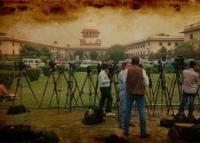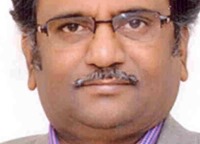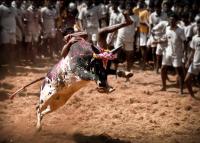Supreme Court
A case was filed on Saturday against Bollywood stars Shah Rukh Khan and Salman Khan in a court in Meerut for hurting the sentiments of the Hindu community.
The case was filed before the special judicial magistrate’s court by the Akhil Bharat Hindu Mahasabha, accusing the two actors of showing disrespect to the Hindu community by shooting with their shoes on in a temple of Goddess Kali in a promo of reality TV show “Bigg Boss”. The episode was aired on Colors channel on 19 December and 20.
The case has been listed for hearing on 18 January.
Bharat Rajpur, city president of the organisation, said the act was deliberate and aimed at hurting the religious sentiments of Hindus.
He said he had already brought up the matter with the producer, director and programme head of the TV channel but to no avail.
“I brought this to the notice of the district magistrate and senior superintendent of police but no action has been taken.
“So now, I have knocked the doors of the court and I am ready to go up to the Supreme Court for the cause,” he said.
The Bar Council of Kerala will now start constructing the MK Nambyar Academy for Continuing Legal Education, as its foundation stone was laid by Chief Justice of India (CJI) TS Thakur yesterday, reported The Hindu.
At the inauguration ceremony, CJI Thakur defended the high litigation fees charged by Supreme Court lawyers and said that these top Indian lawyers also take up many cases pro bono. Legally India and Mint revealed 42 Delhi senior advocates’ fees last year.
Thakur said that the legal profession should not only bring recognition to its practitioners but should be a rewarding one as well. He also said that continuing legal education will empower lawyers to be more effective in the conduct of their cases, and to do justice to the profession.
The leader of the opposition party in the state VS Achuthanandan said that steps should be taken to end the practice of lawyers collecting high fees from clients.
Supreme Court justice Kurian Joseph who was also present at the inauguration, said that the practice of law graduates taking professional oath en-masse should be replaced with them taking oath in the presence of a high court judge so that they “would consider the profession seriously”, reported the New Indian Express.
 History was made today, with three Constitution benches sitting at the same time in the Supreme Court at 2 pm.
History was made today, with three Constitution benches sitting at the same time in the Supreme Court at 2 pm.
 In the ongoing Extra Judicial Execution of Victim Families Association vs Union of India, being heard by justices Madan B Lokur and UU Lalit, the Attorney General had alleged that an article published in The People’s Chronicle (English) and Poknapham (Manipuri) carried certain “highly objectionable statements” by Babloo Loitongbam, who has been reporting the case.
In the ongoing Extra Judicial Execution of Victim Families Association vs Union of India, being heard by justices Madan B Lokur and UU Lalit, the Attorney General had alleged that an article published in The People’s Chronicle (English) and Poknapham (Manipuri) carried certain “highly objectionable statements” by Babloo Loitongbam, who has been reporting the case.
 Retired Supreme Court judges justices Gyan Sudha Mishra, CK Prasad and Balbir Singh Chauhan, were nominated by the apex court to head the proposed Lokpal ombudsman. Also in the running is retired Jharkhand high court chief justice and current Appellate Tribunal for Electricity chairman M Karpaga Vinayagam
Retired Supreme Court judges justices Gyan Sudha Mishra, CK Prasad and Balbir Singh Chauhan, were nominated by the apex court to head the proposed Lokpal ombudsman. Also in the running is retired Jharkhand high court chief justice and current Appellate Tribunal for Electricity chairman M Karpaga Vinayagam
The Supreme Court on Thursday declined to hold an urgent hearing of a plea challenging the Delhi high court’s order allowing, on trial basis, the odd-even policy for private cars for 15 days here.
Declining to hold an early hearing of the plea, the bench headed by Chief Justice TS Thakur wondered if the plea by a young advocate was a publicity stunt.
Why a young advocate is having difficulty in reaching the court, the court observed. The plea was moved by petitioner advocate B Badrinath.
The odd-even policy, under which private cars with registrations ending in even numbers could ply only on even dates, and vice versa for those with odd-numbered plates, was announced by the state government from January 1-15 after the Delhi high court said the national capital had turned into a gas chamber.
 A three-judge bench of the Supreme Court headed by Justice Anil R Dave, and comprising justices Kurian Joseph and Amitava Roy, heard Massimiliano Latorre, one of the accused in the Italian marines case, who has been permitted by the Supreme Court to be in Italy in view of his health condition, and gave him further extension of time to return to India.
A three-judge bench of the Supreme Court headed by Justice Anil R Dave, and comprising justices Kurian Joseph and Amitava Roy, heard Massimiliano Latorre, one of the accused in the Italian marines case, who has been permitted by the Supreme Court to be in Italy in view of his health condition, and gave him further extension of time to return to India.
The collegium will not wait for the government’s new procedural guidelines on transparent judicial appointments, to start the process of appointment of 400 new high court judges and five new Supreme Court judges, reported the Hindustan Times.
High courts across India are facing 445 judicial vacancies at the moment, amounting to 57 per cent vacancy and facing a case pendency of 45 lakh.
No appointments were made in the higher judiciary ever since 2014 when the government notified the National Judicial Appointments Commission (NJAC). After the Supreme Court struck down the NJAC in October 2015, on 16 December it directed the government to formulate a new memorandum of process (MoP) for transparency in judicial appointments.
But the MoP is still not finalised and will likely take time due to the opinions of many stakeholders asked for, the government informed the court.
Union law minister DV Sadananda Gowda also recently announced his plan to appoint 115 high court judges to fight the rising toll of judicial vacancies expected to rise to 472 in India’s high courts by end of June.
The Supreme Court on Wednesday declined to vacate its order barring the bull taming sport Jallikattu in Tamil Nadu that is held during Pongal festivities beginning on Thursday.
An apex court bench comprising Justice Dipak Misra and Justice NV Ramana declined to lift an earlier order that put on hold a central government notification allowing Jallikattu and bull races.
Rejecting the contention of petitioner Ramakrishna, the judges said they were not inclined to vacate the Supreme Court order of Tuesday prohibiting Jallikattu on grounds of cruelty to the bulls.
Jallikattu, an ancient sport, is held in rural parts of Tamil Nadu during Pongal festival. It involves young men clinging on to the hump of bulls to win prize money.
The Supreme Court will hear at 3 p.m. on Wednesday a bunch of petitions seeking vacation of the stay on the bull taming sport Jallikattu in Tamil Nadu.
Counsel Raja Ramana, appearing for the petitioners, told an apex court bench headed by Justice Dipak Misra that Jallikattu was a matter of faith and believers viewed bull as a god.
He told the court that no cruelty was involved in Jallikattu, an ancient sport in which young men try to cling on to the hump of the bull for a certain amount of time in order to win prize money.
The Supreme Court on Tuesday put a bar on Jallikattu citing cruelty to animals. The event figures prominently during Pongal festivities in Tamil Nadu that start on Thursday.
 The Supreme Court has stayed the Centre’s notification that allowed Central Government’s notification allowing Jallikattu in Tamil Nadu.
The Supreme Court has stayed the Centre’s notification that allowed Central Government’s notification allowing Jallikattu in Tamil Nadu.
The Supreme Court on Monday said that unless a temple had a constitutional right, it could not prohibit the entry of the women pilgrims to offer worship.
A bench of Justice Dipak Misra, Justice Pinaki Chandra Ghose and Justice NV Ramana said this in the course of the hearing of a petition by the Indian Young Lawyers Association challenging the Sabrimala Ayyappan Temple’s custom of prohibiting the entry of women devotees between the age of 10 years and 50 years.
Directing that it would examine the challenge to the custom prohibiting the entry of women of this age group, the court observed that a “temple can’t prohibit entry except on the basis of religion. Unless you have constitutional right you can’t prohibit the entry”.
The court directed the next hearing of the matter on 8 February.
The ruling immediately divided the faithful into two camps -- those who want to retain the present system and those who want that women of all age groups should be allowed entry into the Sabarimala temple.
"Even though god does not differentiate between man and woman, as far as Sabarimala temple and its traditions are concerned, it has a well thought out process and a system," Kalidasan Namboodiripad, a tantric priest in Kerala, told IANS.
"The fulcrum of the Sabarimala pilgrimage revolves around a 41-day penance. Keeping that in mind, the question of women being able to do that cannot happen because it is not possible and practical," he added.
Situated on the mountain ranges of the Western Ghats at 914 metres above sea level, the Sabarimala temple is four kilometres uphill from Pamba river in Pathanamthitta district, around 100 km from Thiruvananthapuram.
The temple, which bars the entry of women who have attained puberty, is accessible only on foot from Pamba.
Till a few years back, it was open only for two months -- from mid-November to mid-January. Now it is kept open for five days every month. It draws millions of devotees, mainly from southern India.
Former Devasom minister and CPI-M legislator G. Sudhakaran said women should be allowed entry into the Sabarimala temple. He recalled that the Left government had said so to the Supreme Court in 2008.
"Where men can enter, women also should and can enter," Sudhakaran said.
But Kantereru Rajiveru, the Sabarimala temple thantri, defended the bar on women.
"A decision on what should be told to the court has to be taken only after discussions with all concerned as faith is of prime importance," he said.
Kerala Devasom Minister and Congress leader V.S. Sivakumar told reporters that the government would look into all aspects before returning to the Supreme Court.
With the two-month temple season on, even devotees seemed to be split.
"What's wrong if women also come and pray here? It should be open to women also so that there can be family pilgrimages," said a male pilgrim at the foothills of the temple.
But a 43-year-old woman said she was a Lord Ayyappa devotee and "somehow I feel that women need not be permitted to enter".
"Traditions and customs cannot be addressed by a court of law," said the homemaker in Thiruvananthapuram.
Strongly backing the existing custom, Rahul Easwar told IANS in Chennai that there were other Ayyappa temples women of all age groups could go to.
Shoba Warrier, a journalist in Chennai, told IANS: "If the temple does not want women to come, then so be it. There are other temples for us to go."
According to Warrier, the argument that Ayyappa was a celibate and hence young women were not allowed may not be right as there was no such bar on visiting other celibate Hindu gods such as Hanuman.
In 2006, all hell broke loose when Kannada actress Jaimala claimed she had touched the famed Sabarimala deity in 1987, violating a age-old temple tradition.
The Supreme Court on Monday said that unless a temple had a constitutional right, it could not prohibit the entry of the women pilgrims to offer worship.
A bench of Justice Dipak Misra, Justice Pinaki Chandra Ghose and Justice NV Ramana said this in the course of the hearing of a petition by the Indian Young Lawyers Association challenging the Sabrimala Ayyappan Temple’s custom of prohibiting the entry of women devotees between the age of 10 years and 50 years.
Directing that it would examine the challenge to the custom prohibiting the entry of women of this age group, the court observed that a “temple can’t prohibit entry except on the basis of religion. Unless you have constitutional right you can’t prohibit the entry”.
The court directed the next hearing of the matter on 8 February.